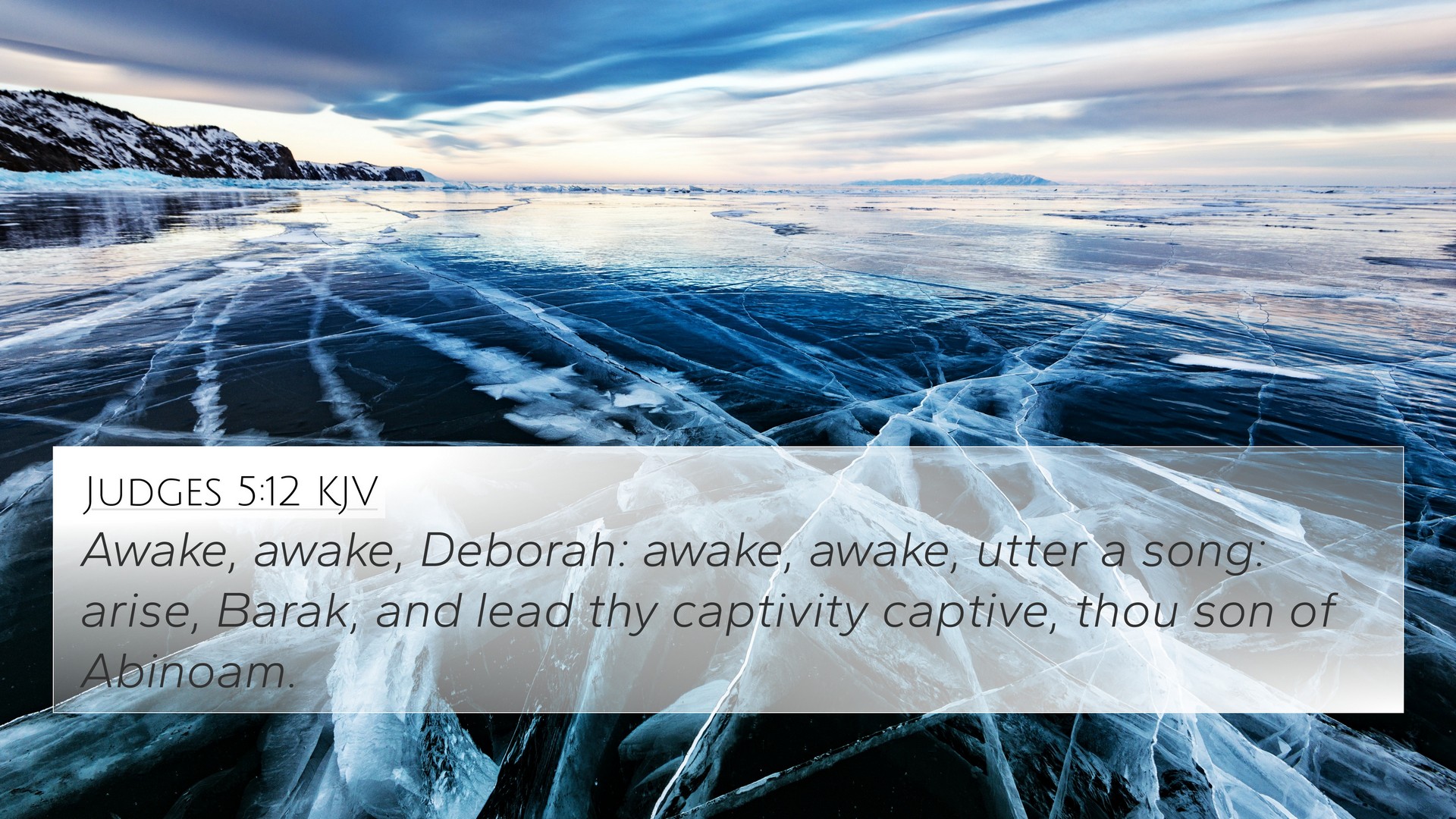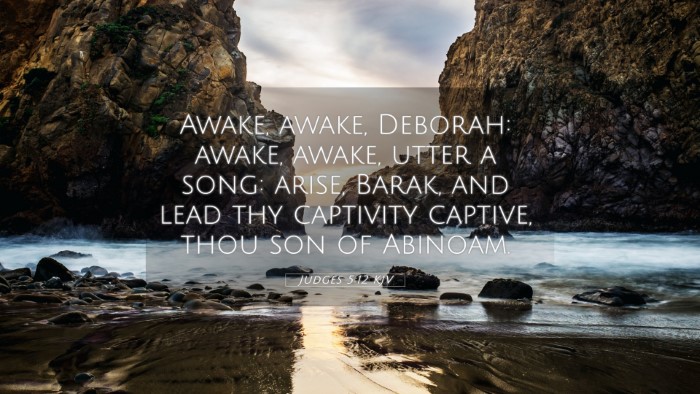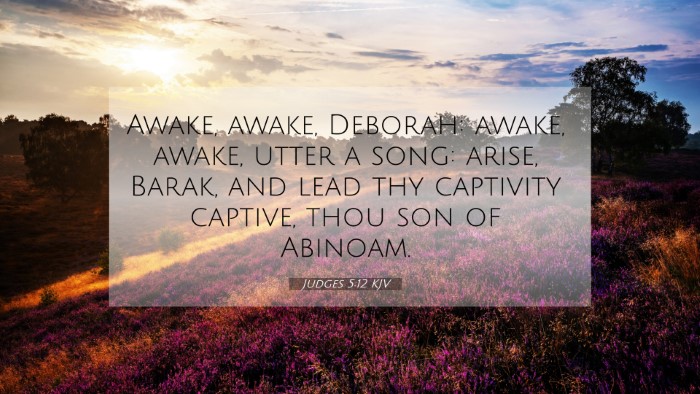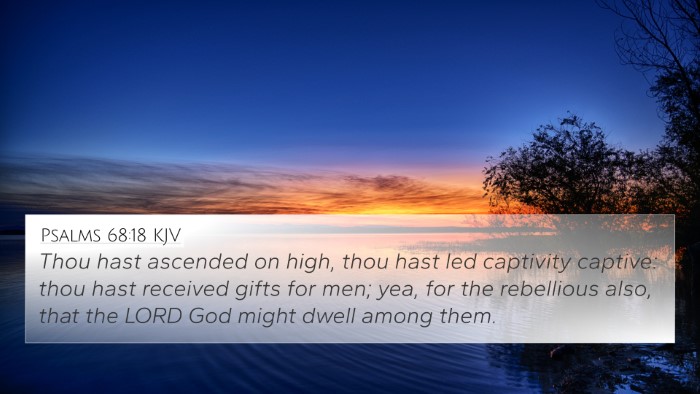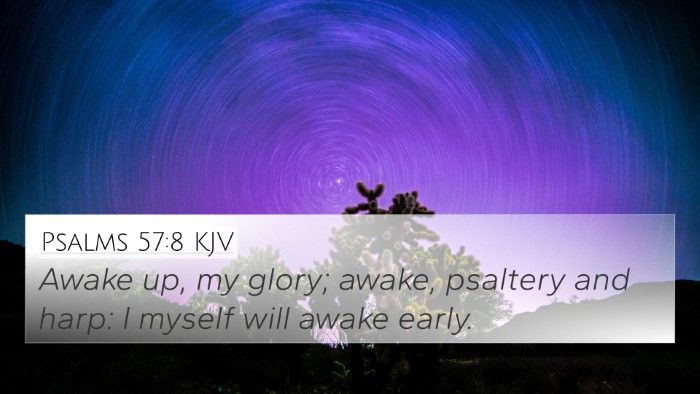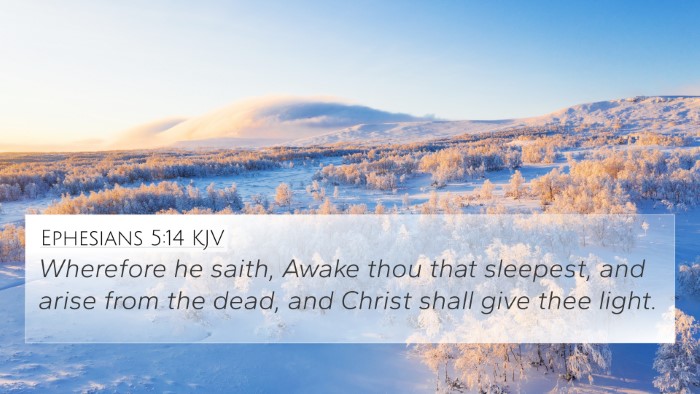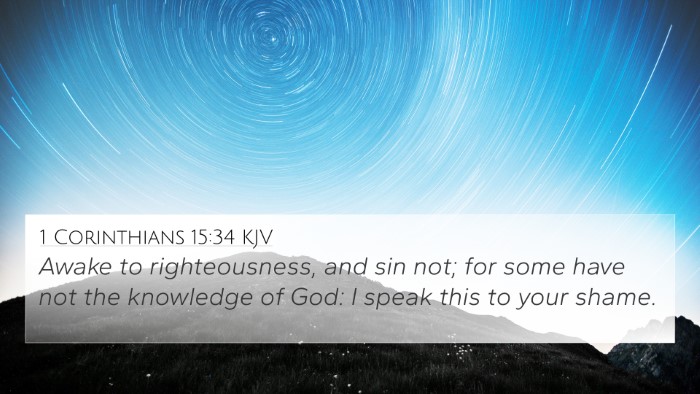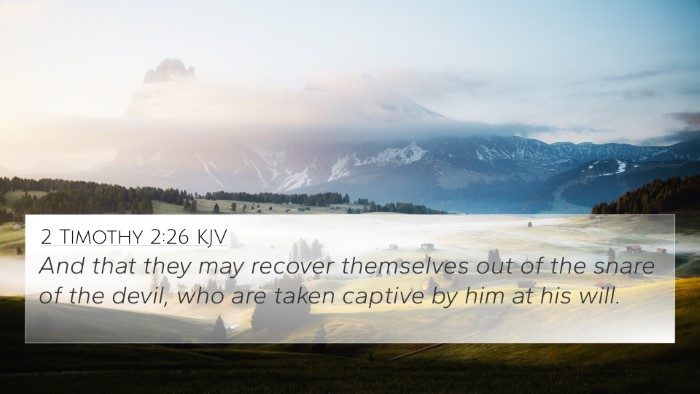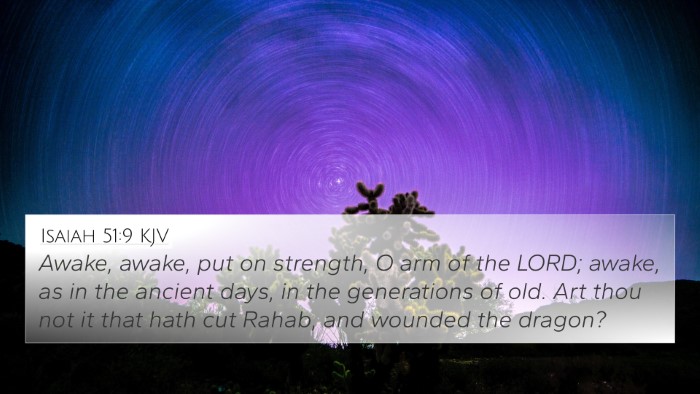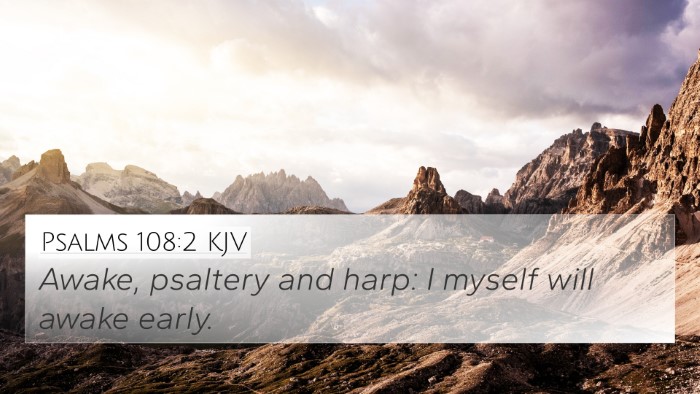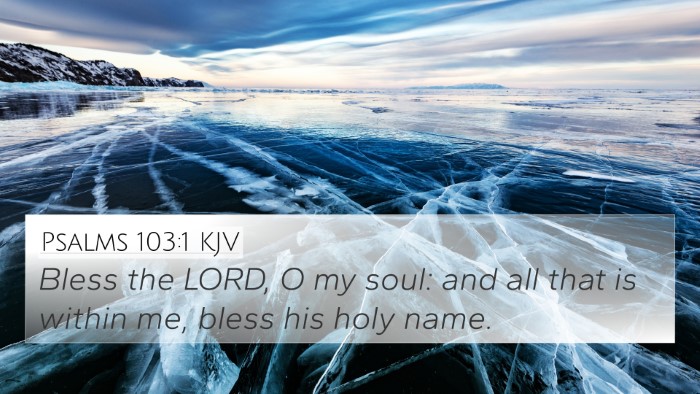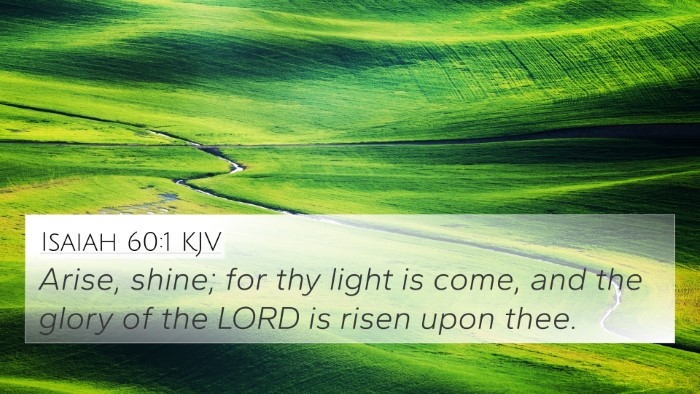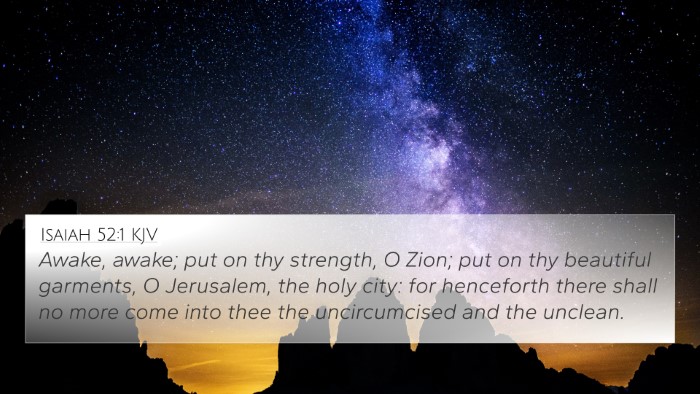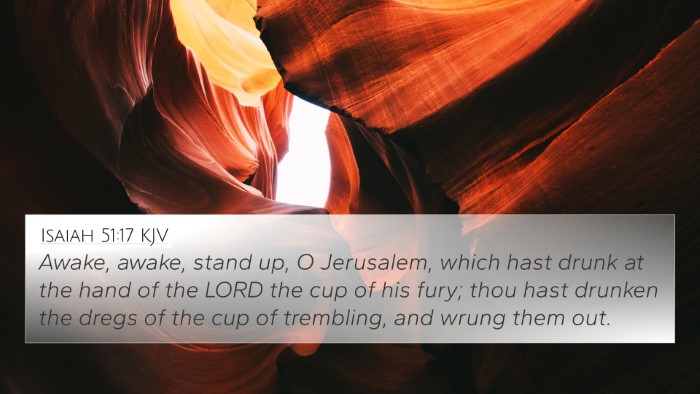Understanding Judges 5:12
Judges 5:12 states, "Awake, awake, Deborah! Awake, awake, utter a song: arise, Barak, and lead thy captivity captive, thou son of Abinoam." This verse is an integral part of the Song of Deborah, a poetic victory hymn that celebrates the defeat of the Canaanite army led by Sisera.
Meaning and Interpretation
The call for awakening addresses both Deborah and Barak, signaling the importance of their roles in Israel’s deliverance. Here is a deeper exploration of this pivotal verse:
- Deborah’s Role: Deborah, being a prophetess and a judge, represents divine inspiration and leadership. Her awakening symbolizes the need for spiritual vigilance and the acknowledgment of God's power in delivering Israel (Matthew Henry).
- Barak's Leadership: Barak is called to lead the people, indicating that God’s deliverance relies on human agency as well. His actions depict a response to God’s call for action through Deborah (Albert Barnes).
- The Theme of Song: The instruction to "utter a song" highlights the importance of praise in acknowledging God's work. Songs serve as memorials of God's interventions throughout history (Adam Clarke).
Cross-Referencing Related Bible Verses
This verse connects with numerous other scriptural texts, enhancing the understanding of themes such as leadership, divine intervention, and the importance of communal remembrance through song. Below are significant cross-references:
- Psalm 68:18: "Thou hast ascended on high, thou hast led captivity captive; thou hast received gifts for men." - Similar themes of victory and leadership are present in both texts.
- Judges 4:14: "And Deborah said unto Barak, Up; for this is the day in which the LORD hath delivered Sisera into thine hand." - This sets the stage for understanding the charge given in Judges 5:12.
- Exodus 15:1: "Then sang Moses and the children of Israel this song unto the LORD." - This song of triumph parallels the victory song sung by Deborah and Barak.
- Hebrews 11:32-34: References to judges like Barak serve to showcase their faith and the divine victories achieved through them.
- Isaiah 51:9: "Awake, awake, put on strength, O arm of the LORD." - This invocation correlates with the awakening aspect of Judges 5:12, emphasizing divine strength.
- 1 Samuel 2:1: Hannah's song of praise shares the characteristic of exalting God for His interventions, much like Deborah's song.
- Revelation 2:17: The promise of hidden manna and a new name signifies the ultimate victory and leads to the idea of leading captivity captive, pointing towards future divine victory (Adam Clarke).
Tools and Resources for Cross-Referencing
For those looking to explore the interconnections between scriptures further, several tools and resources can be utilized:
- Bible Concordance: A comprehensive alphabetical listing of topics and their locations within the scriptures.
- Bible Cross-Reference Guide: Tools that outline links and parallels between different verses and passages.
- Cross-Reference Bible Study: Structuring a study around thematic connections found through cross-referencing verses.
- How to Use Bible Cross-References: A guide on navigating cross-references effectively to enhance understanding of scripture.
- Bible Chain References: Systems that help readers follow thematic trails through the Bible, showing connections across books.
Thematic Connections
The verse in Judges is not only about victory over oppression but reflects broader themes found throughout the Bible:
- Leadership and Obedience: The need for leaders who respond to God's calling is a recurrent theme; Barak and Deborah exemplify this call.
- Victories Through Faith: The song illustrates that victories are won through faith and trust in God.
- Heritage of Song: The significance of singing and remembrance is echoed throughout scripture, from the songs of Moses to Paul and Silas in prison.
Conclusion
Judges 5:12 encapsulates critical elements of Israel's history, emphasizing the importance of divine communication, leadership, and the celebration of God's victories through song. Its thematic connections highlight the continuity of God's promises and interventions throughout the Bible.
For those seeking a deeper understanding of how these verses correlate with other teachings in both the Old and New Testaments, engaging in methods of Bible cross-referencing will reveal rich layers of meaning and insight.
